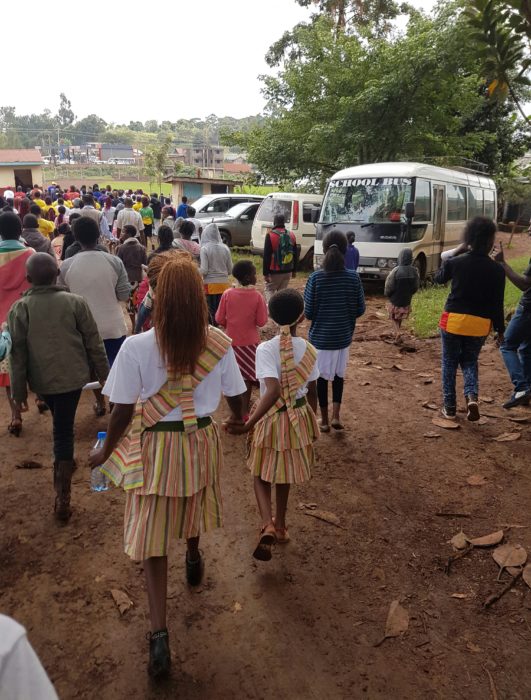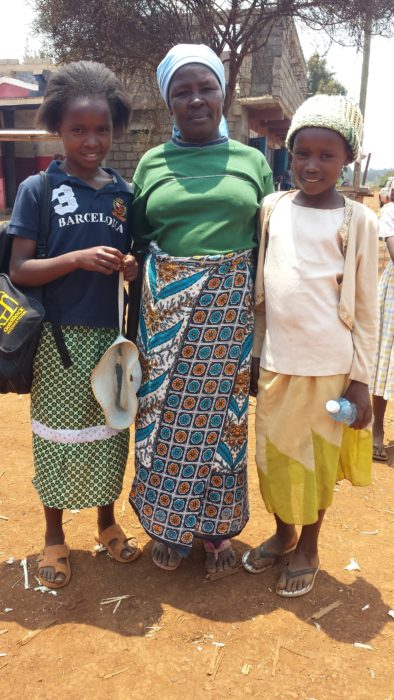Time is NOW to Get Kids Home!

Kenya is home to approximately 2.5 million orphaned and vulnerable children – most of whom live within family and community environments. Unfortunately, the number of children living in institutions like orphanages or so-called children’s homes is unknown since many institutions operate unregistered and are therefore outside of government regulation.
In Kenya, communities have traditionally responded to children without adequate parental care by placing them informally with extended family or community members. Notwithstanding, institutional care remains a persistent and troubling response to poverty and family breakdown in the country. At Stahili, we believe that every child should grow up in a family and that this goal is achievable.
We often wrongly assume that these institutions like “orphanages” are there to support orphans, but over 80% of the children in orphanages globally have a living parent.
So why do children live in orphanages if they have family? Orphanages are big business in Kenya and traffickers prey on vulnerable families to recruit children. They also prey on the goodwill of volunteer tourists (also known as voluntourists) who travel from afar to help “orphans”. But despite their good intentions, voluntourists are of no assistance when it comes to children’s care and long-term development, and vulnerable children do not need selfies or hugs from foreigners.
To call this situation anything but child trafficking is far too kind to the traffickers who keep children separated from families and exploit them for financial gain. The problem of child trafficking to orphanages is rampant in Kenya, and something needs to be done about it.
Stahili is doing something about it! We have developed a successful model in Kenya to bring trafficked children recruited into orphanages for financial gain home to their families and/or establish family-based care for children, leading to the closure of an orphanage. In this particular orphanage, 97% of the children had family who simply could not care for them due to poverty.
Getting children out of orphanages was and is only the first step. So how do we do it?
Together with community leaders, we conduct family tracing, connect with families, and empower them to bring their children home, and provide all of the tools needed to reintegrate children into families and communities. Through a sustainable plan, we make good on the promise of food and education security they sought to achieve from the traffickers. At the same time, we search for and connect with donors and stop the seemingly never-ending cash tap generously donated to help the “orphans”. At the same time, we ask donors to redirect their money, enabling family reunification and support. If there are no proceeds of crimes, there are usually no crimes. This eventually leads child traffickers to abandon their orphanage operations.
Decades of research demonstrates that long-term institutionalisation and separation is detrimental to a child’s emotional, physical, and psychosocial well-being and exposes children to risks of abuse, neglect, and exploitation. As donors, we want our money to go a long way, and the right way. Orphanages are not only bad for children, but are ten times more costly than family-based care.
There are alternatives to orphanages which are in line with the rights of the child. The mythical orphan in need of an orphanage is just that – mythical. But this requires a careful reflection upon the hard truth and a change in hearts and minds as donors.
The majority of children can be reunited with their families given the right support. And organisations like Stahili can and do provide family-based support, even where children have no one to turn to. This requires time, care, expertise – something most orphanages are either unwilling to do or do not have the capacity to do.

We call on those donors who have unintentionally fueled the rise in orphanages to help us and other organisations address this need to end child trafficking and bring children home to families. Together, we can be part of the solution by redirecting funding.
Will you join us and help us bring child victims of trafficking home by making a donation to Stahili today? Every little bit counts.